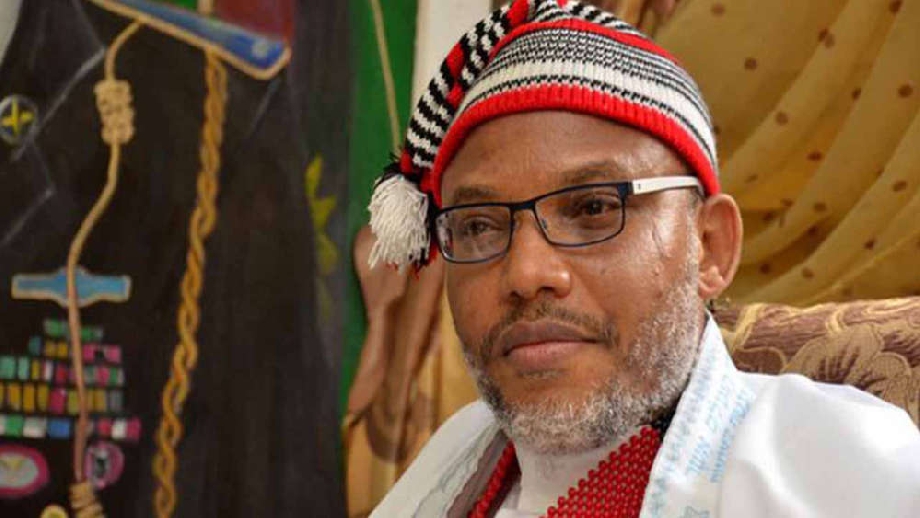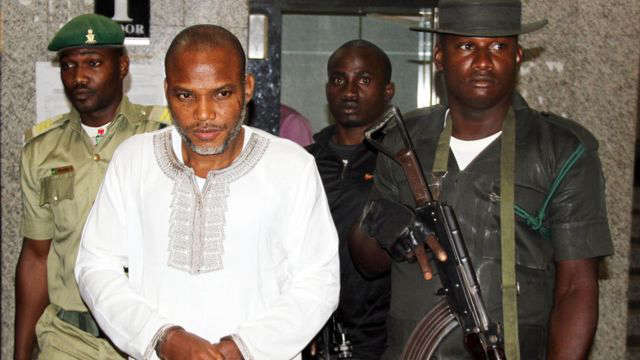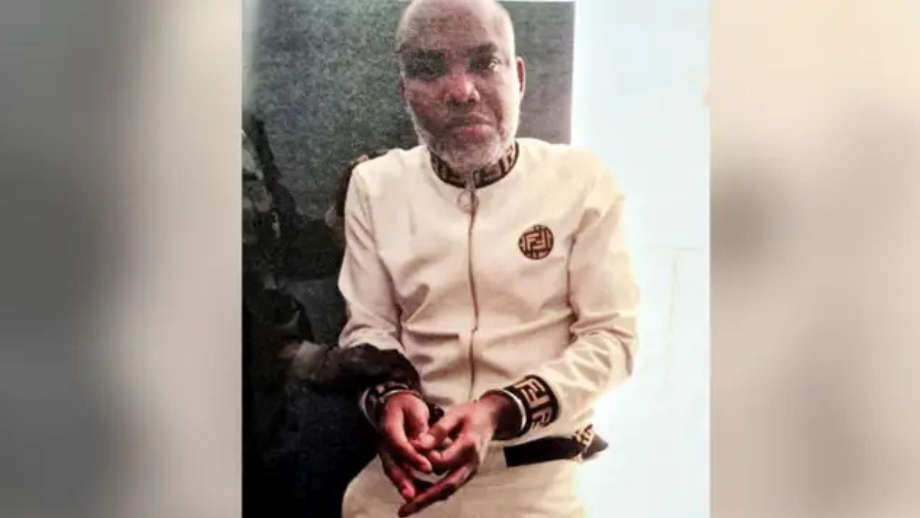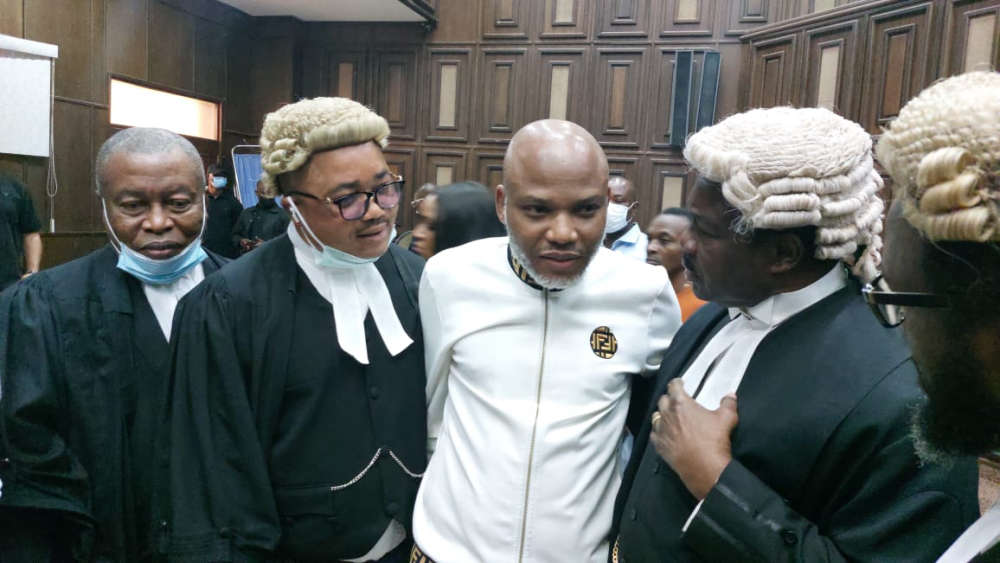
The Federal High Court in Abuja on Thursday, sentenced Mazi Nnamdi Kanu, leader of the proscribed Indigenous People of Biafra (IPOB), to life imprisonment after convicting him on all seven counts of terrorism and treasonable felony. This sentence marks the latest and most decisive chapter in one of Nigeria’s most controversial legal battles, one that is marked by arrests, rulings from multiple courts, and questions over due process.
Kanu was first arrested in October 2015 in Lagos for Treasonable Felony and Sedition.
At the time, the Federal Government's case was centered on his role as the director of the UK-based Radio Biafra, whose broadcasts were deemed by authorities to be inflammatory, inciting listeners to revolt, and threatening the sovereignty of the Nigerian state through calls for secession and the creation of the independent Republic of Biafra.

He was held in the custody of the Department of State Services (DSS) in Abuja for the majority of the period before his release in April 2017.
Justice Binta Nyako of the Federal High Court stated that she was convinced that Kanu was ill and needed better medical attention than what the Nigerian prison service could provide.
Kanu’s bail came with exceptionally strict conditions. Justice Nyako mandated that Kanu provide three sureties, each bonded for ₦100 million, totaling ₦300 million. He was barred from granting interviews, holding rallies, or being seen in a crowd of more than ten people.
Furthermore, he was required to surrender both his Nigerian and British passports, preventing him from leaving the country. The period between Nnamdi Kanu’s release on bail in April 2017 and his re-arrest in June 2021 was highly turbulent, fundamentally transforming his legal situation.
In September 2017, Kanu disappeared following a military operation (Operation Python Dance II) that allegedly raided his home in Abia State.
Following his disappearance, the court revoked his bail, and the Federal Government formally designated IPOB as a terrorist organization.

Allegedly operating from abroad, Kanu intensified his separatist campaign through Radio Biafra and social media. It was based on this rhetoric that the Federal Government amended his charges, escalating them from Treasonable Felony to Terrorism.
The re-arrest of Nnamdi Kanu was announced by the Nigerian government on June 29, 2021, confirming he was apprehended in Kenya and subsequently brought back to Nigeria.
The primary reason for the capture was his status as a fugitive who had jumped bail in 2017.
Justice Nyako reduced his initial 15-count charge to seven in 2022. In October, same year, the Court of Appeal discharged him, ruling that his illegal rendition invalidated the charges and ordering his release.
That relief was short-lived. In December 2023, the Supreme Court overturned the appellate decision, stating that although the rendition violated international law, it did not strip the trial court of jurisdiction to proceed.
Following the Supreme Court's order, the case returned to Justice Nyako, but she eventually recused herself due to Kanu’s public declaration of lack of confidence and claims of bias.
Following the reassignment of the case to Justice James Omotosho in March 2025, Kanu was formally re-arraigned on the seven remaining terrorism-related charges, pleading not guilty.
Although the Federal Government closed its case in June 2025, relying heavily on evidence from five witnesses regarding Kanu’s inciting broadcasts, in September, the court dismissed Kanu's 'no-case submission,' compelling him to open his defense.

However, Kanu refused to present a defense in October 2025, citing the court's alleged lack of jurisdiction due to his illegal rendition.
Justice Omotosho ruled that Kanu had exhausted his chance to defend himself.
On November 20, 2025, Justice Omotosho found Kanu guilty on all seven counts of terrorism and delivered a life sentence. The life term was specifically applied to four counts:
- Conspiracy to commit an act of terrorism (Count One).
- Inciting/Threatening violence (Count Four).
- Inciting followers to attack security operatives (Count Five).
- Ordering and enforcing violent Sit-at-Home orders (Count Six).
The judge also sentenced Kanu to 20 years on Count Three (for being a member of a proscribed terrorist group, IPOB) and 5 years on Count Seven (for importing an unregistered radio transmitter). According to him, all sentences are set to run concurrently.
Kanu now has 30 days to file an appeal Justice Omotosho’s ruling, with the clock officially ticking.


